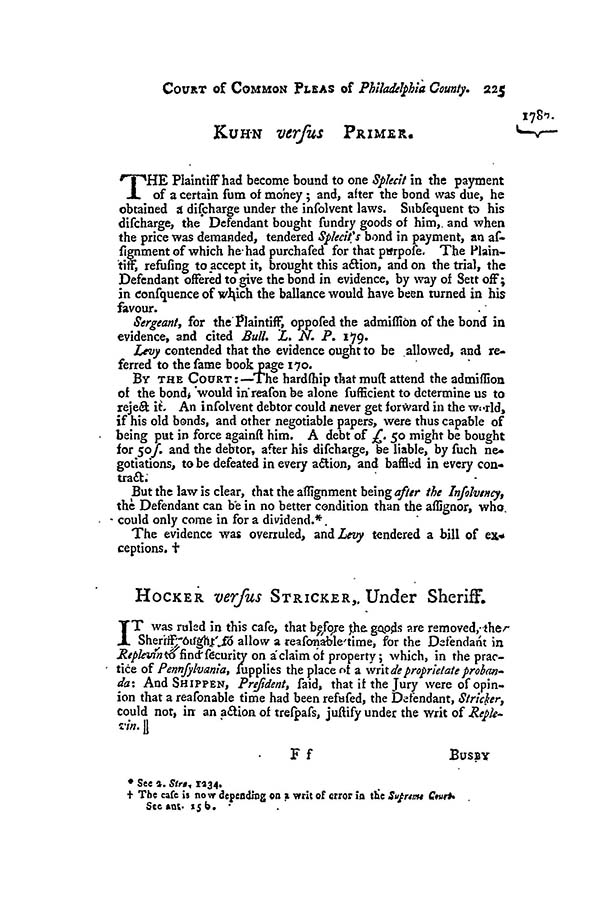Kuhn v. Primer, 1 Dall. 225 (C.P. Phila. Cty. 1787)
Common Pleas, Philadelphia County:
September Term, 1787.
Kuhn versus Primer.
The Plaintiff had become bound to one Splecit in the payment of a certain sum of money; and, after the bond was due, he obtained a discharge under the insolvent laws. Subsequent to his discharge, the Defendant bought sundry goods of him, and when the price was demanded, tendered Splecit's bond in payment, an assignment of which he had purchased for that purpose. The Plaintiff, refusing to accept it, brought this action, and on the trial, the Defendant offered to give the bond in evidence, by way of Sett off; in consquence of which the ballance would have been turned in his favour.
Sergeant, for the Plaintiff, opposed the admission of the bond in evidence, and cited Bull. L. N. P. 179.
Levy contended that the evidence ought to be allowed, and referred to the same book page 170.
By the Court:—The hardship that must attend the admission of the bond, would in reason be alone sufficient to determine us to reject it. An insolvent debtor could never get forward in the world, if his old bonds, and other negotiable papers, were thus capable of being put in force against him. A debt of L. [Footnote 50] might be bought for 50s. and the debtor, after his discharge, be liable, by such negotiations, to be defeated in every action, and baffled in every contract.
But the law is clear, that the assignment being after the Insolvency, the Defendant can be in no better condition than the assignor, who could only come in for a dividend.*
The evidence was overruled, and Levy tendered a bill of exceptions.†
*See 2. Strs. 1234.
†The case is now depending on a writ of error in the Supreme Court. See ant. 156.
Citation: Kuhn v. Primer, 1 Dall. 225, 1 U.S. 225 (C.P. Phila. Cty. 1787).

Last modified: December 5, 2014